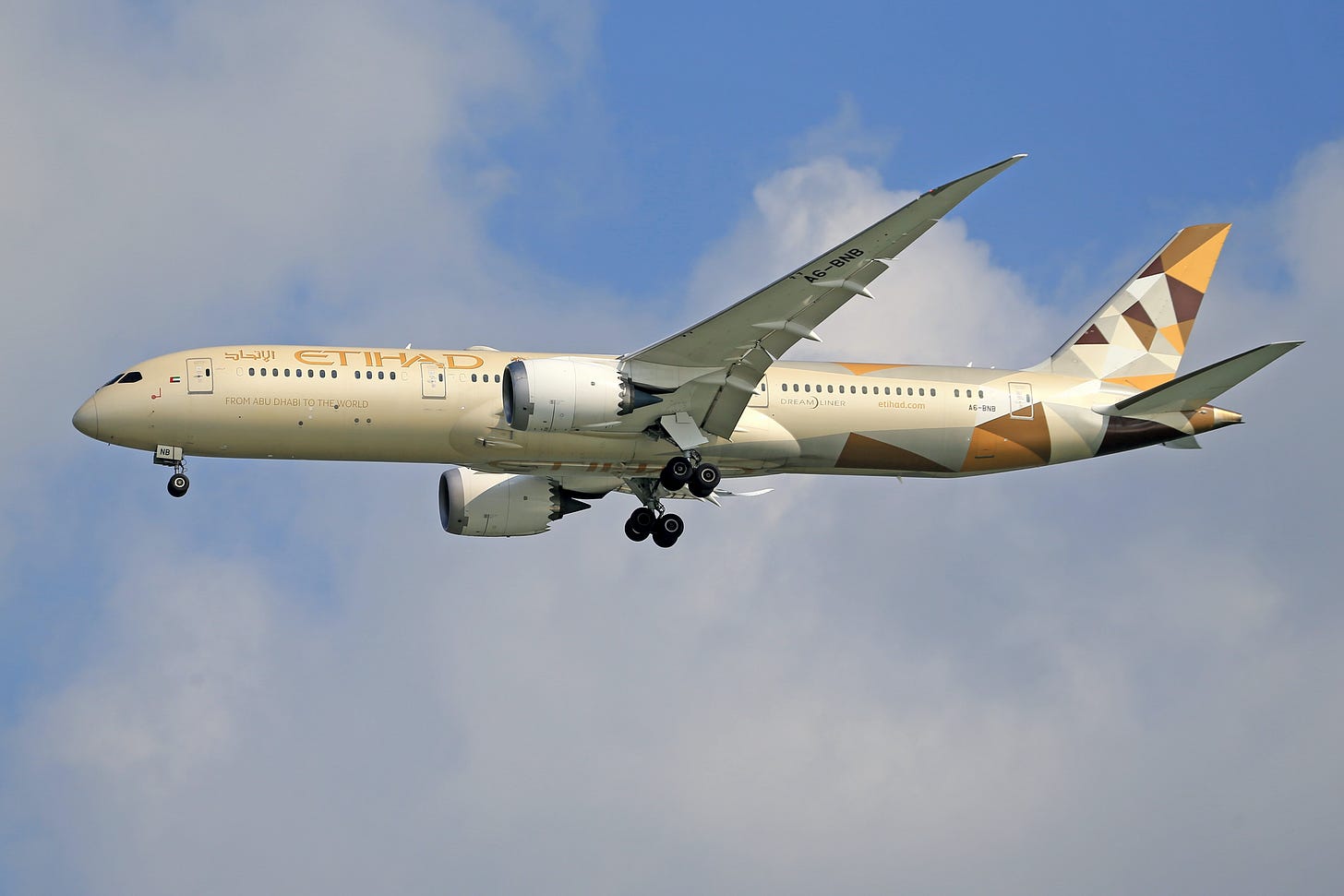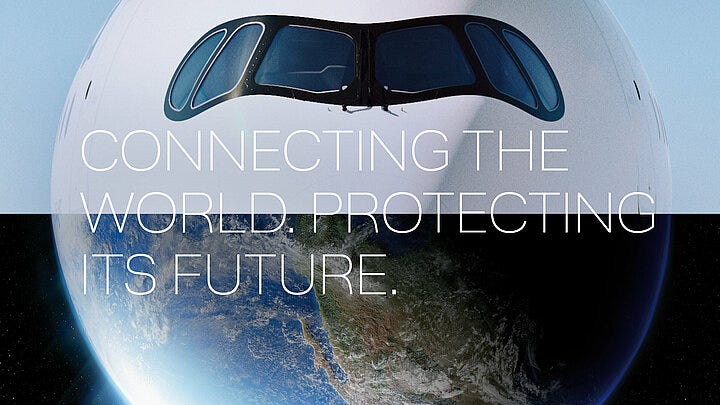Six reasons why greenwashing claims are increasing
Understanding the why, as well as the what.
Last week, Etihad was the latest airline to have an ad campaign struck down by a European regulator.
Earlier this month, the UK’s Advertising Standards Authority (ASA) weighed in to take exception to social media ads that carried the phrase, “... we’re taking a louder, bolder approach to sustainable aviation.”
According to the ASA - “[there are] currently no initiatives or commercially viable technologies in operation within the aviation industry which would adequately substantiate an absolute green claim such as ‘sustainable aviation’ as we considered consumers would interpret it in this context.”
This followed separate complaints in Australia that Etihad ads with the words “net zero emissions by 2050” and “flying shouldn’t cost the earth” were misleading.
Other airlines on the receiving end of greenwashing cases include Ryanair (in the Netherlands), Austrian Airlines (in Austria), Lufthansa (in the UK), and KLM (in the Netherlands – ongoing at the time of writing).
What should airlines do to avoid falling into the greenwashing trap? That’s something we explore in our whitepaper, which you can download here.
However, if you are going to deal with the ‘what’, you really, first of all, need to understand the ‘why.’ Why are these cases being brought forward with increased regularity by environmental groups?
Six reasons why greenwashing claims in aviation are increasing
1. It generates media coverage
Currently, there's a media appetite for greenwashing cases. It plays to an ongoing narrative of corporations pulling the wool over consumers’ eyes with bogus environmental claims.
As a result, each of the examples we mentioned above generated extensive coverage. In fact, win or lose, simply bringing a case forward results in a burst of publicity, as well as public conversations around aviation and global warming
2. It’s a way to target all airlines
While Etihad or Emirates don’t have to deal with the same domestic pressures as KLM or Lufthansa, if they advertise in Europe, they too will be targeted by environmental groups.
After all, as far as activists are concerned, the industry as a whole is a polluter. It’s not really about this or that individual airline.
3. Airlines are still using vague, feel-good sustainability slogans
“Fly responsibly”, “Fly Greener”, “Connecting the world / protecting its future”, “C02 neutral aviation”, “Sustainable Aviation.” These were all phrases struck down by ad regulators.
What do they have in common? They are all old-school feel-good advertising slogans. But they are open to interpretation, and so can’t really be 100% proven.
As a result, they can and will be challenged.
4. It’s about loosening airlines’ social licence to operate
Given aviation’s growing share of emissions, climate groups see frequent flying as an environmental, and so a social ill.
Their aim is to have airline marketing boxed into an increasingly regulated space, much like alcohol or tobacco advertising, or to be banned altogether.
So, when activists use the hashtag #banfossilfuelads on social media, they make no difference between Lufthansa or British Airways on one hand, and Exxon or Shell on the other. For them, they are all part of the wider fossil fuel industry.
5. They don’t believe us
By 2020, 3.5% of European jet fuel consumption was meant to be made up of biofuels. Needless to say, as of 2023, we are nowhere near that – it’s well under 0.5%.
Meanwhile, last year, climate charity Possible released a report claiming that 49 out of 50 airline sustainability targets from 2010-2020 had either been delayed or missed.
There’s a history of sustainability claims that have been made, which then amounted to very little. As a result, there is a fundamental credibility problem.
Environmentalists believe that the industry isn’t serious and is simply kicking the can down the road while focusing on short-term profits fuelled by growth.
6. The problem of growth
Growth is, in fact, the one word that summarises the whole issue.
The airline industry is built on it. That growth, in turn, wipes out any incremental gains made by introducing more fuel-efficient aircraft.
As a result, at the current growth trajectory, aviation’s 2-3% share of global emissions could become 20% by 2050.
The airport industry's awakening
Environmentalists point to airlines overturning the Dutch Government's attempts to cap Amsterdam Schiphol Airport flights at 440,000 per year as a sign that the industry is not willing to accept any kind of ecological ceiling whatsoever.
Turning from airlines to airports, however, some CEOs have woken up to the dangers of carrying on with business as usual.
For example, last year, Paris Airports CEO Auguste de Romanet said that decarbonisation would have to come before further growth; otherwise, we’d find caps imposed upon us (much as the Dutch Government is trying to do).
Similarly, Rome Airports’ boss Marco Troncone has warned that in the next five years, the industry’s perception problem as a contributor to global warming could become acute.
Royal Schiphol Group CEO Ruud Sondag said that the airport would be putting “people first” by banning private jets from 2025 and instituting a night curfew.
Simply put, growth needs to be decoupled from emissions. There are industry bodies looking at this, for example, Impact on Sustainable Aviation recommended decoupling as one of three proposed criteria for measuring an airline’s environmental impact.
But until we credibly demonstrate that this decoupling is possible, which involves rapidly scaling up new technologies and SAF, we’ll see more greenwashing cases being brought against airlines.






